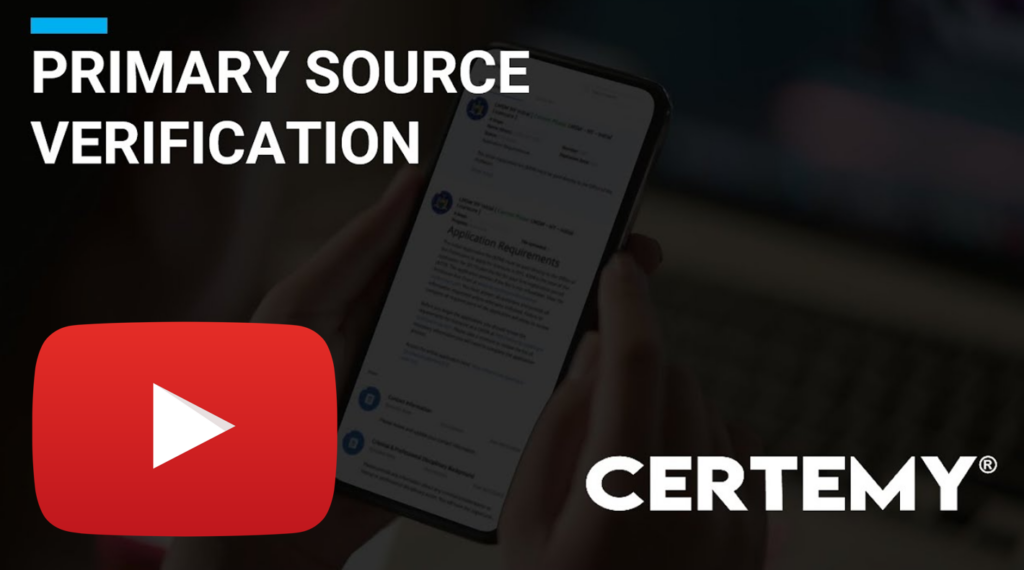
License Verification Tool | ACHPN – Palliative Care Nurse Practitioner
When a healthcare facility or hospice organization is looking to hire a Palliative Care Nurse Practitioner (PCNP) in the United States, they must ensure that the prospective employee is indeed qualified to practice in their state. This is why license Verification is so important.
A license verification process involves confirming that a PCNP has the proper certification and that it is active, up to date, and free of sanctions or other disciplinary actions. To protect the organization and its patients, this essential step should not be delegated to staff that have not been properly trained in this process.This guide will provide a comprehensive overview of license verification for a PCNP, as well as detail the steps involved in leveraging automated primary source verification systems to ensure accuracy and streamline operations.What is a Palliative Care Nurse Practitioner?A Palliative Care Nurse Practitioner (PCNP) is a trained and board-certified healthcare provider who specializes in providing end-of-life care to seriously ill or dying patients. They typically provide symptom management, psychosocial support, pain management, and spiritual care to patients living with serious, life-limiting illnesses. PCNPs typically work in hospice facilities, but they may also provide services in hospitals, long-term care facilities, or other clinical settings.What is the PCNP Licensure Process?In order to practice as a PCNP in the United States, candidates must successfully complete a certification process that includes certification by national hospice and palliative care organizations, such as the Hospice and Palliative Credentialing Center (HPCC). Certification requires documentation of experience, completion of an accredited program, and passage of an exam.Once verified, the certification is valid for two years in all US states and territories, and must be renewed every two years. In some cases, additional state regulations may be applicable so It is important that license renewal is followed correctly.Why is Primary Source Verification Necessary for PCNPs?Primary source verification (PSV) is the process of validating healthcare professionals? licenses and certifications through direct contact with the issuing organization. This process is essential for any facility or organization that employs healthcare providers like PCNPs, because it ensures that the individuals they hire are properly qualified and certified.PSV is also important for regulatory Compliance. In the US, federal laws (such as HIPAA, the Medicare Conditions of Participation) and state laws require healthcare organizations to document that their healthcare staff are qualified and certified. The US Department of Health & Human Services recommends primary source verification as the best practice for verifying professional credentials since it ensures the most accurate, up-to-date information.How can Automated Primary Source Verification Systems Help?Most organizations handling primary source verification process manually. However, this is a time-consuming and labor-intensive process that is subject to human error. Automating this process can help healthcare organizations save time, reduce errors, and ensure accuracy and regulatory compliance.Automated primary source verification (APV) systems use powerful verification software to automate the process of validating a PCNP?s license. The software collects information from the primary source (in this case, the HPCC) and automatically verifies its accuracy. This streamlines operations and ensures that PCNPs have valid license and credentials.In addition, APV systems also offer many other benefits. They can be set up to automatically track and manage licenses and certifications, stay ahead of regulatory compliance, provide real-time tracking of employee credentials, improve team utilization, and leverage pre-built workflows to automate licensing processes.In the endPrimary source verification is essential to ensure that a Palliative Care Nurse Practitioner is qualified to practice in a healthcare facility or hospice organization. Automated primary source verification systems provide an easy way to streamline the license verification process and ensure regulatory compliance. They also offer many other benefits, such as real-time tracking of employee credentials, improved team utilization, and automated license application processes.Topics:

